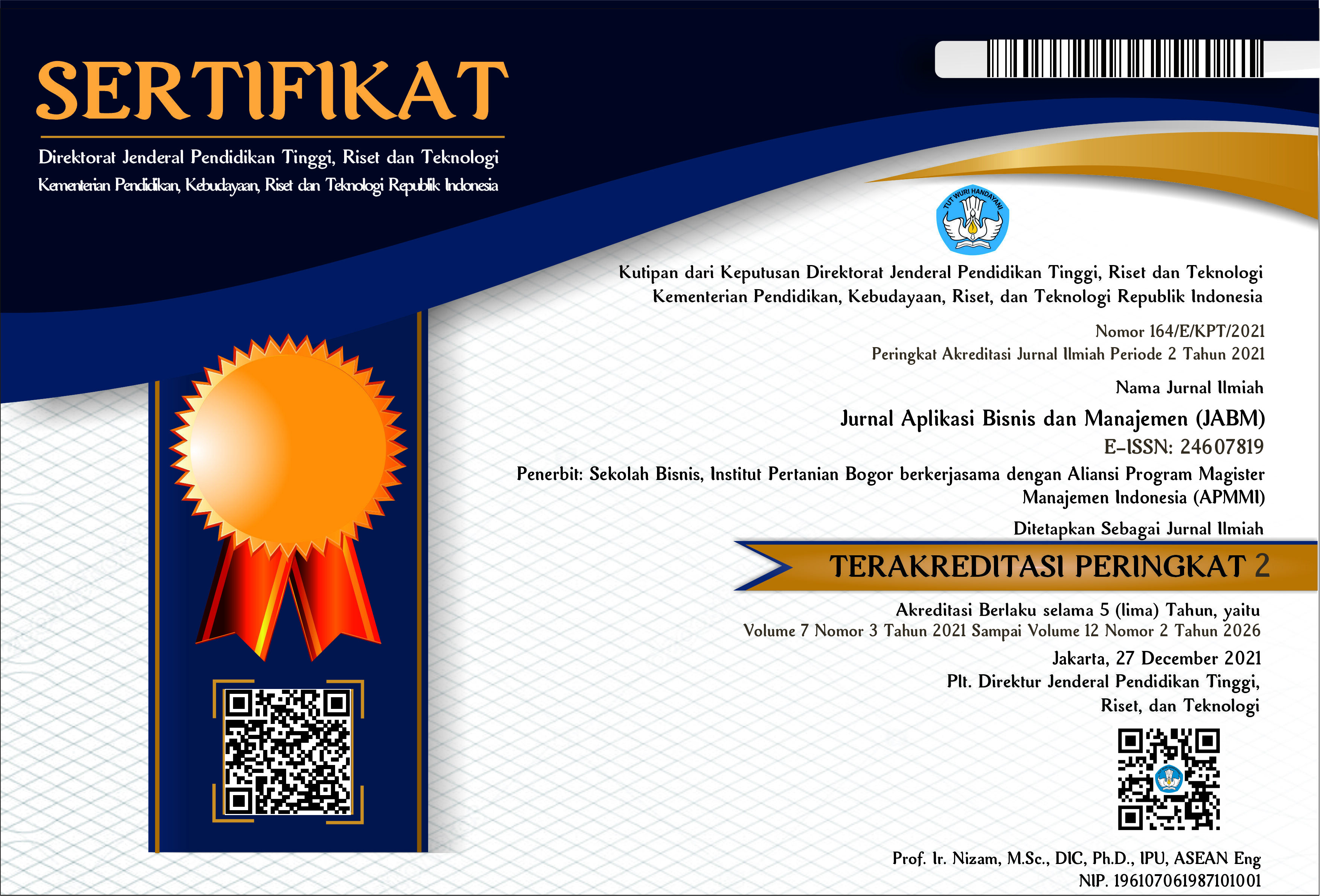Understanding The Drivers of Interest in Fintech Adoption: Examining The Moderating Influence of Religiosity
DOI:
https://doi.org/10.17358/jabm.9.3.695Abstract
Fintech is an innovation in financial services with the application of modern technology to introduce practicality, convenience, ease of access, and affordable costs. The purpose of this study was to examine the impact of attitudes, subjective norms, and behavioral control in the theory of planned behavior on interest in utilizing fintech, using religiosity as a moderation variable. This research is a quantitative study with explanatory research method to prove the research hypotheses. Data were gathered through the distribution of questionnaires to 570 respondents who had or were utilizing fintech, and analyzed using partial least squares (PLS). The findings revealed that attitudes, subjective standards, and behavioral control had a substantial impact on interest in utilizing fintech, while religiosity does not moderate the relationship between variables. As a result, fintech service providers are advised to increase positive assessments of the use of fintech services, to make use of social media, and to collaborate with influencers to hype up Indonesians' interest in using fintech. The research findings could be useful for increasing interest in utilizing fintech by engaging in tangible consumer financial and technology education that supports wider adoption of fintech.
Keywords: planned behavior, subjective norm, behavioral control, fintech







